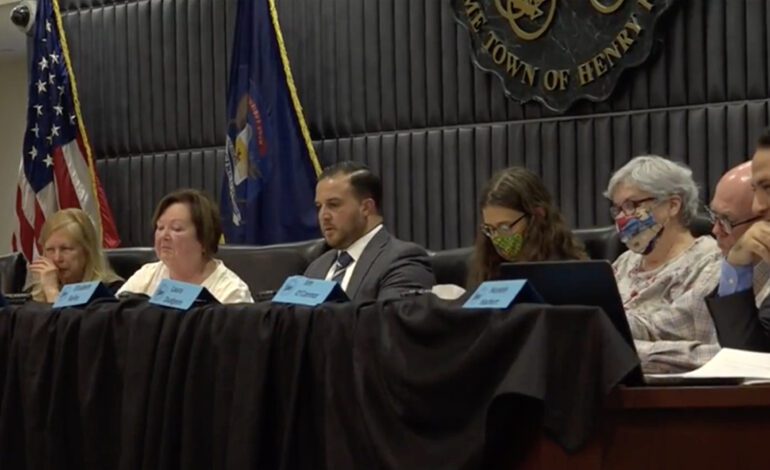DEARBORN — On Wednesday, the Dearborn Charter Commission rejected a proposal to change the current election rules of the City Council members from seven members at large representing the entire city and switch to a wards system with nine districts, in order to ensure fair and equitable representation for all neighborhoods on the City Council that some activists were advocating.
In a 5-4 vote, the nine-member commission decided to keep the current at-large system in which voters elect seven members of the City Council and nine members of the Charter Commission in citywide elections.
Commissioner Elizabeth Bailey put forth a proposal that would have changed Dearborn to a system of nine wards where City Council members and charter commissioners would live in and represent their respective nine geographic districts known as wards. That proposal was not voted on Wednesday.
Proponents of Bailey’s plan said it would improve representation and make the city more responsive to marginalized communities, while opponents said it would be divisive.
The commission is currently working on several proposed changes to the city charter, which would then be placed on the ballot next February for voters to approve or reject. Bailey’s proposal would have been among the proposed changes.
Commission Chair Hassan Abdallah and members Sharon Dulmage, Hussein M. Hachem, Timothy Shawn Harrison and Dr. Cheryl D. Hawkins voted against the proposal, while members Laura Dudgeon, L. Glenn O’Kray and James O’Connor joined with Bailey in voting for it.
Dulmage said before the vote that if people want a wards system, they can gather signatures and get it on the ballot for a vote instead of asking the Charter Commission to make the changes. Bailey responded that the commissioners should be making these changes themselves instead of trying to “push our work off onto the residents.”
The nine Charter Commission members are currently working on completing the proposed amendments and changes, which are expected to be completed within a few months. After that, a final draft of the revisions will be prepared and submitted to the Michigan Attorney General’s Office for review within 90 days to ensure that the articles and regulations in all parts of local government are consistent with state and federal laws. The amendments and changes would then be put to a vote in February.
Many speakers during the public comments section at the Commission meeting, which convened at the Dearborn City Council chamber, appealed to the nine members to approve the wards proposal, and not to miss the opportunity to do the right thing for the city’s residents rather than delay it for several years. This was in reference to the 12-year period to elect another commission to amend and revise the city’s charter.
Wednesday’s meeting drew a dozen or so residents from both sides of the aisle.
“Wards can create an us versus them system,” one resident said.
“I believe this proposal would be harmful to Dearborn,” another resident claimed.
Mona Mowari, an advocate for wards, did not agree.
“To me, the city is already divided,” Mowari said. “There is stark differences between the West, East and Southend.”
Gary Woronchak, a Dearborn resident who’s a former State House representative and former Wayne County Commission chairman, spoke out at the meeting against wards, saying it could “exacerbate the divisions within the city, to pit neighborhoods against neighborhoods.”
Proponents of wards said their next step may be to get a proposal on the ballot separately from the charter proposal or seek legal help from the U.S. Department of Justice, which has intervened in cities like Eastpointe to increase diversity and representation.






Leave a Reply